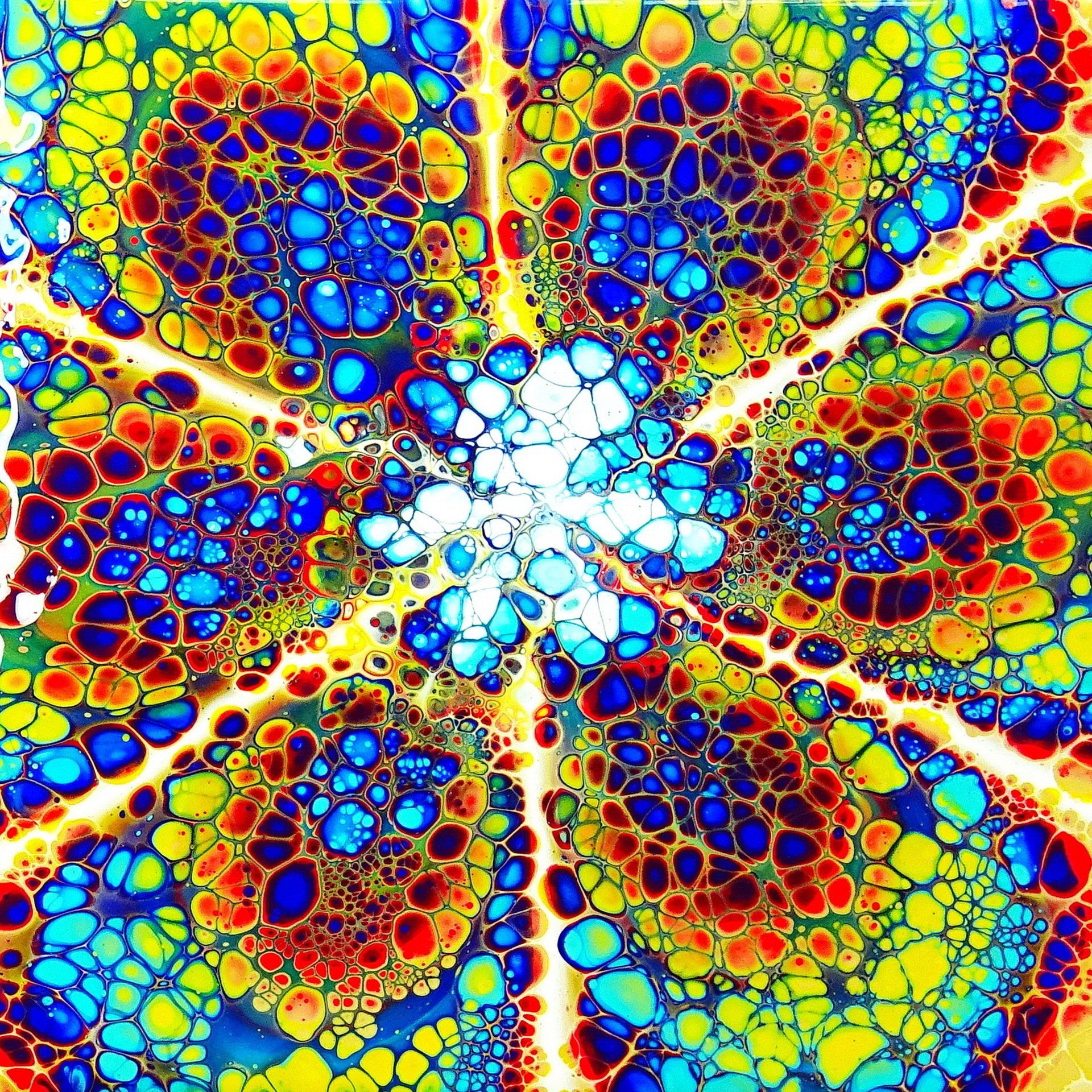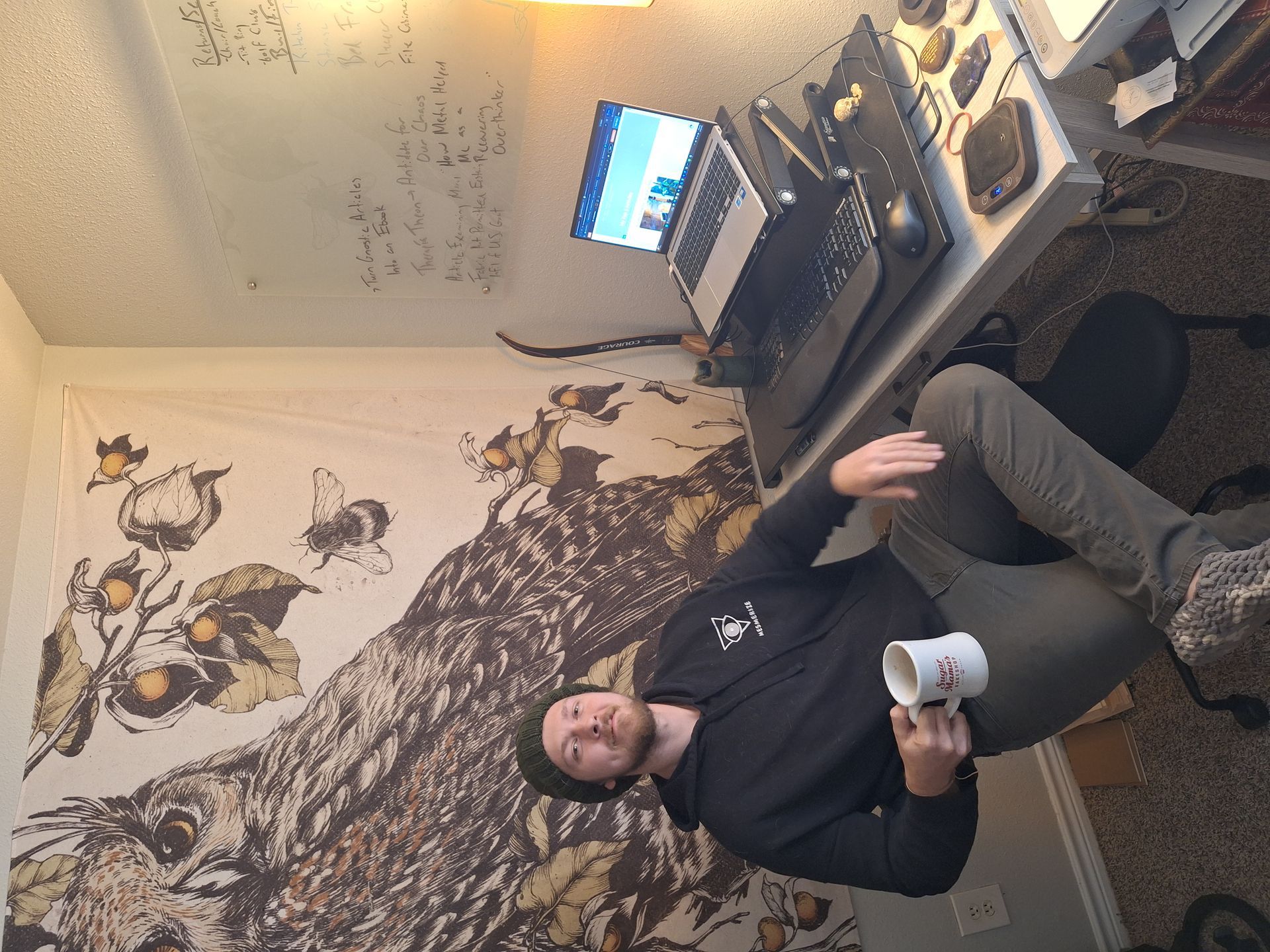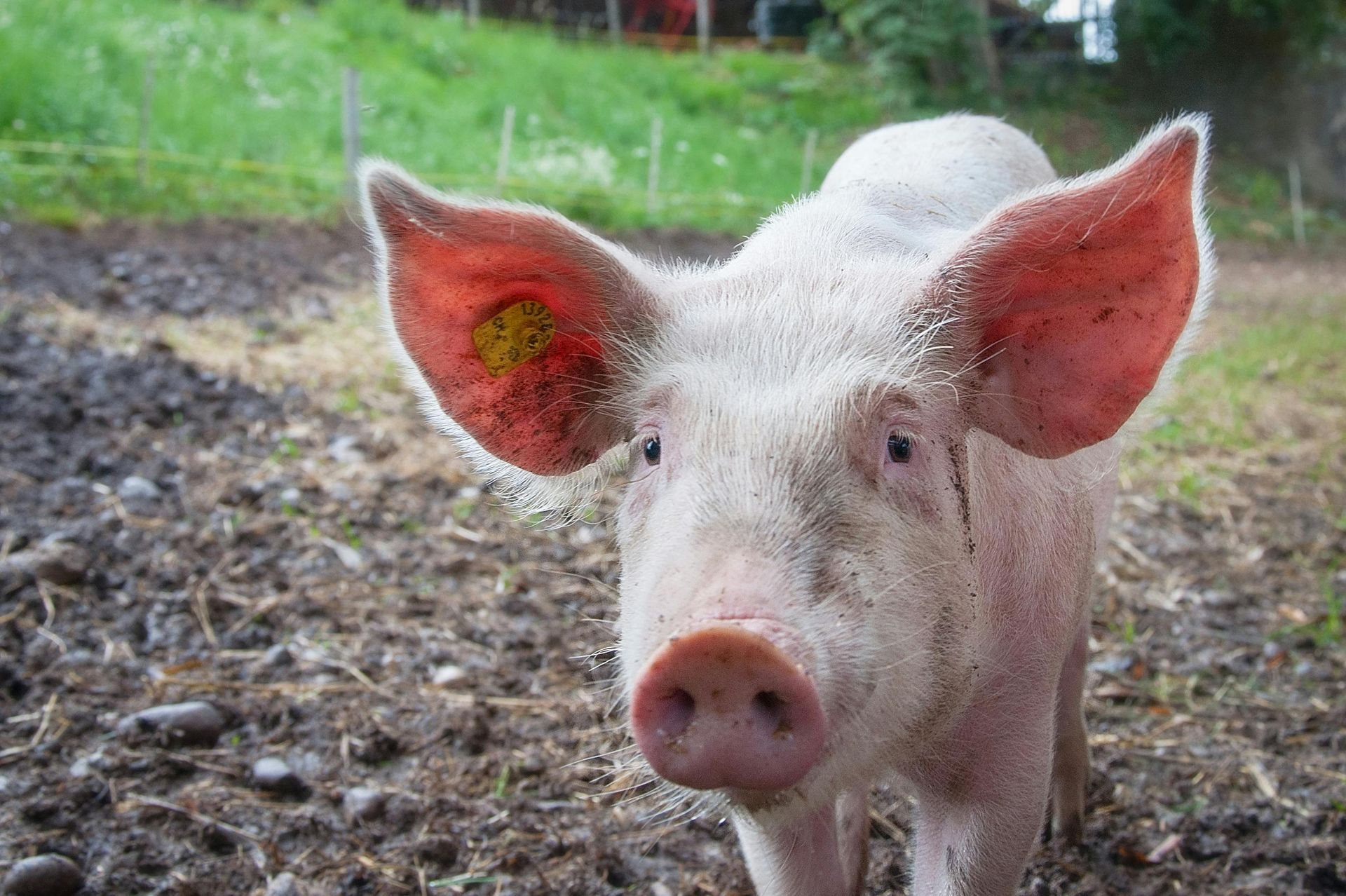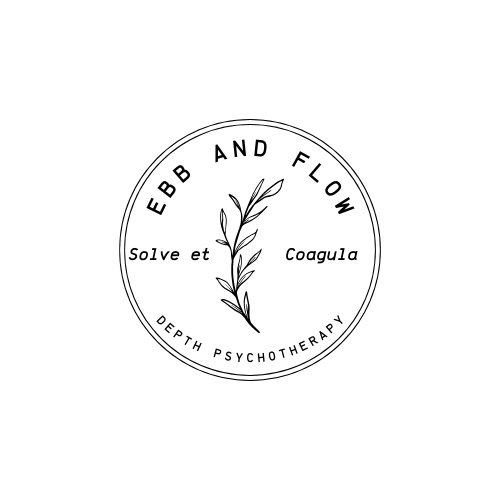On How to Know Thyself
Michael Ebbinghaus • January 6, 2023
Knowing Yourself Should Eventually Take You Deep Outside Yourself

I can feel confident in my position. I spent a great deal of time educating myself and opening myself up to different points of view, all to ensure that my words and perspective could most effectively contribute to a collaborative narrative. There is a great deal of grand-standing in this world, and it pays to be patient and weigh one’s biases and desires. What are we in a hurry to do, exactly, and from whence come our aspirations? Even if we have passed the point of no return and this world descends into calamity and chaos, the intrepid and hard few will stake a claim for the rest of our kind and make way for a Great Reincarnation.
We are cosmic beings incarnated in flesh. Why resent our corporeal fact? Everything must be a heroic journey, every insight an epiphany, every event a cataclysm. Yet nothing changes; the condition remains the same. We explore our Self so that we may put in proper proportion the little-s self of the ego, not aggrandize it. This is no insult. The ego has its purpose, and we forget the enormity, eternity, and fullness of who we are so that we can descend into matter and become a myriad of forms. When the infinite is aware of Itself as such, when all differentiations are blurred, when All is Known, spontaneity and surprise, those elements which underlay the most ecstatic of states: laughter and orgasm, are diluted.
"We forget the enormity, eternity, and fullness of who we are so that we can descend into matter and become a myriad of forms."
If you knew how your own particular game would go, would you even play at all? If it could be made known to us, wouldn’t the Universe throw us yet another curveball? The knowledge of the future would alter the future. Awareness is as much a part of the present as our own respirating cells. We forget what a gift it is to be willfully unaware, to possess limited consciousness.
So long as we are not oblivious to It entirely.
I will not relinquish my position as a skeptic and inquisitor of my own experience. I continue to go on the journey of loving my form, painful at times though it may be. I do not know why I am this way. I do not know why a pallor of blackness falls upon my heart on occasion, why there is a voice in my head that visits me with visions of horror and suicide. Yes, part of it is my own limited identification, believing in the world my little self-created world as if it were the reality of God.
Also…
It is good that there are a great variety of people. Whatever it is that makes me vulnerable to depression also engenders a deep curiosity and strong empathic capacity. We are all too eager to fat ourselves on our own power and ability. The ravenousness of our technology is all too apparent, poised as we are on the cliffside of thermonuclear, biological, or ecological catastrophe. Such hubris applied to genetic engineering could allow us to produce any kind of human we desired, and sow in the predispositions towards whatever traits our society finds valuable. The issue with this is that there is so much we do not know.
We do not know what the future will bring or what varieties of people might work best together. If we short our capacity to adapt on the front end through genetic engineering, favoring our intellect and its predictions, we undercut our intuition and the grand intelligence that weaves Itself through us. Some majesty is at work, after all, and the reality of our present moment and the degree of freedom we possess and are sharing with the world, is testimony to that.
"When the infinite is aware of Itself as such, when all differentiations are blurred, when All is Known, spontaneity and surprise, those elements which underlay the most ecstatic of states: laughter and orgasm, are diluted."
I do not indulge the painful parts of myself, nor do I make them my enemy. I engage in the imperfect attempt to befriend and work with these vital energies and acknowledge the immanence of my demise, living this life that I, the creator, have put myself here for.
Our greatest weakness, while also our greatest strength, is our rugged materialism. We do not recognize the existence of anything that cannot be collectively observed and replicated in a laboratory setting, that sterile ground meant to remove the variables that stymie our predictive power. The enormity of Creation is threatening to our sense of separate self. In the same way that medieval Christians distrusted the Earth and the Body, modern scientists distrust the subjective experience of individuals. While individuals are flawed and biased, our institutions and the people which comprise them make no distinction between disciplined and undisciplined approaches, holding the experiences of the Tibetan adept commensurate with the ramblings of fanatics and false prophets. All the while they neglect the very faculties that make analysis of such “objective” data possible, opening us to doomful ignorance.
"Our position is indeed an exalted one, one that we should be humbled and grateful for."
The most obvious and important realities, the ones that are with us all of the time, in the words of David Foster Wallace, are the ones that are “the most difficult to see and talk about.” Wallace’s acknowledgment of this and the incredible power of his intellect did him little service in the matter, gone from this world by his own hand. It is good to have a solid sense of self, and there are times when confronting our demons and shadows is indeed an act of heroism. But if we contend with our entire reality as a matter of the upmost importance, unbalanced by an air of joviality, humor, and absurdity, we run the risk of aggrandizement, undue urgency, and miss out on fantastic opportunities for fun. We embroil ourselves in the very drama that we feign desire to alter, improve, etc. Those of us raised in Western culture have long been under the spell which leads us to believe that this whole affair we are enmeshed in is ultimately serious, and that the role of humanity is of the upmost importance.
Our position is indeed an exalted one, one that we should be humbled and grateful for. But our position is not to Lord ourselves over the material world, just as the medieval God Lorded Himself over all Heaven and Earth. In some respects, our role is the conductor of a symphony, in others as the players which hold careful watch over the baton. To conceive of ourselves of any one thing is to Fall from Grace. To lose ourselves in the enormity of possibility is to be torn apart by the forces of Hell.
"If we contend with our entire reality as a matter of the upmost importance, unbalanced by an air of joviality, humor, and absurdity, we run the risk of aggrandizement, undue urgency, and miss out on fantastic opportunities for fun."
We are ever on the hunt for this one thing, the Philosopher’s Stone of the alchemical process, that will bring us everlasting peace. Historically this was cemented by the religious concept of Heaven in the afterlife, and by our culture as “making it,” establishing financial freedom through economic crucifixion and rebirth. Medicine retreats, therapy, culture war, ideologies: it is no wonder we attempt to aggrandize every insight we have, for this to be "the one." We are so dissatisfied with the present that we fail to recognize any wisdom it might engender towards a more satisfying, just, and gorgeous future. However, the alchemical process is one in which both the substrate to be transformed and the process that transforms it are altered. What is yielded is not a product, but a deeper initiation into creation, greater levels of understanding and embodiment. We will not visit the nigredo
only once, but many times in our individual lives and throughout time. These processes are not limited solely to humans; humans are merely one extension of the One. The heart of the Tibetan lama is not free from suffering – however, how he relates to suffering is utterly what transforms it, and therefore he is
free from suffering. Suffering does not have him.
The soul incarnates into the body of a beautiful baby. The baby grows into an adult, demarcated by her capacity and stature. Through time, disease, or injury, the adult gives way to death. As the cycle progresses, just as the mollusk gave way to the rat who became the swinging ape who stood upright into the human, so too the human will become something else. Always, that force of the numinosum
funnels Its way toward a more beautiful and encompassing form. In us that numinosum
saw fit to encapsulate Itself within our own internal frame of will. We are the marble and the sculptor. Those of us at the integral stages are charting territory that our brethren will follow. Regardless of which stage of development we are at, we are all creating the culture and the world that we live in. Our differences, whether in perspective or levels of awareness, is what makes the whole affair so funky and interesting.
It is popular to criticize the current epoch without creating any cultural change. We are fond of obliterating boundaries and focusing on ever-evolving markers of identity, an ultimately narcissistic affair. Change your outward appearance and define your gender however you wish, self-exploration has a limit at which it ceases to be helpful and nourishing and becomes cancerous. The difference between a medicine and a poison is the dose. If we were as eager to develop structures as we were to destroy them, the fervor with which I write these words would not be so great. The youth (though it is not limited to them), in their zeal to rebel, end up far more like their parents than they would dare consider. Defining oneself in antithesis is no more authentic than defining oneself in conformity. We become fully ourselves not only for our own interest, but for that of all. The journey of that discovery is one that we should all hope should never end. In any case, it will not.


